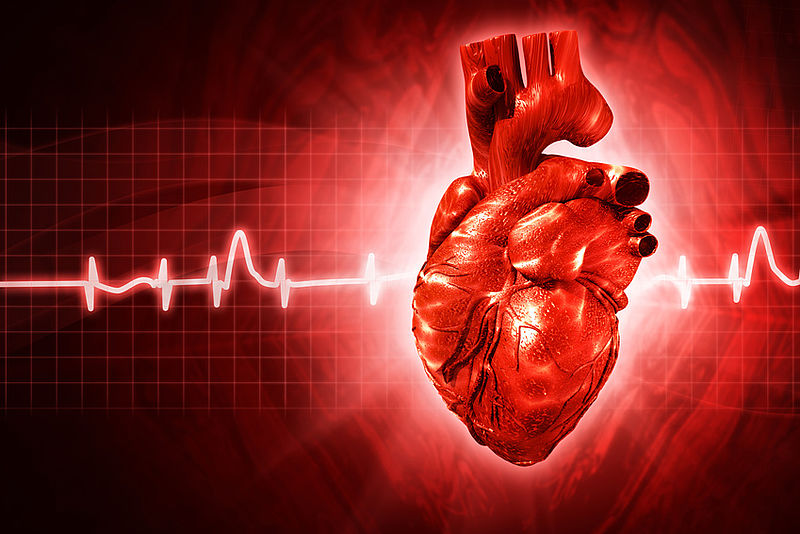Update 19.05.2024 (subanalysis)
In patients with device-detected atrial fibrillation and a previous stroke, oral anticoagulation leads to more bleeding without a significant reduction in the incidence of stroke. This is the result of a sub-analysis of the NOAH-AFNET-6 study.
It was presented on 19 May 2020 at the annual congress of the American Heart Rhythm Society (HRS) in Boston, USA. To the press release of the Atrial Fibrillation Network of Expertise (AFNET) on the idw website.
Update 09.04.2024 (subanalysis)
In patients with device-detected atrial fibrillation and several concomitant diseases, oral anticoagulation leads to more bleeding without a significant reduction in the frequency of strokes. This is the result of a sub-analysis of the NOAH-AFNET6 study.
It was presented on 9 April 2020 at the annual congress of the European Heart Rhythm Association (EHRA) in Berlin and published simultaneously in the European Heart Journal. To the press release of the Atrial Fibrillation Network of Expertise (AFNET).Update 13/11/2023 (subanalysis)
In patients with device-detected atrial fibrillation, the risk of stroke appears to be low (1% per year) compared to ECG-detected atrial fibrillation, even in patients with long episodes. Oral anticoagulation may slightly reduce the risk of stroke, but may also increase the risk of major bleeding. This is the result of a subanalysis of the NOAH AFNET 6 study.
It was presented at the American Heart Association (AHA) annual meeting in Philadelphia, USA, and published in the European Heart Journal. To the press release.
Atrial high-rate episodes are short and rare atrial arrhythmias that resemble atrial fibrillation detected by implanted pacemakers, defibrillators, and loop recorders that enable long-term monitoring of heart rhythm. AHRE are found in 10-30% of patients with implanted devices (2). AHRE episodes resemble atrial fibrillation. Therefore, patients with AHRE are often offered treatment with blood thinners (oral anticoagulation) without ECG-documented atrial fibrillation. So far, the efficacy and safety of oral anticoagulation has never been tested in patients with AHRE (2,3).
The results will be presented at the ESC Congress 2023 in Amsterdam:
Hotline Session, 25th of August, 11:15-12:15 am
NOAH-AFNET 6: Oral anticoagulation in patients with atrial high rate episodes
The Non vitamin K antagonist Oral anticoagulants in patients with Atrial High rate episodes trial (NOAH-AFNET 6) compared the anticoagulant edoxaban to placebo in an international investigator-initiated, randomized, double-blind, double-dummy outcomes trial. NOAH-AFNET 6 randomized patients with AHRE episodes lasting 6 minutes or longer detected by implantable devices, and aged 65 years or more with at least one additional stroke risk factor of heart failure, hypertension, diabetes, prior stroke or transient ischaemic attack, vascular disease, or age from 75 years. This patient population was outside of the approved indication of edoxaban.
Prof. Paulus Kirchhof, University Medical Center Hamburg-Eppendorf (UKE), Hamburg, Germany, principal investigator of NOAH – AFNET 6 explained the background of the trial: “Whether anticoagulants can prevent strokes in patients with device-detected AHRE, was not known. Although AHRE resemble atrial fibrillation, NOAH – AFNET 6 demonstrates that patients with AHRE are better managed without anticoagulation.”
Between 2016 and 2022, NOAH – AFNET 6 enrolled 2536 patients in 206 sites across 18 European countries. Patients were randomly allocated in a 1:1 fashion to anticoagulation or no anticoagulation. Anticoagulation consisted of edoxaban in the dose approved for stroke prevention in atrial fibrillation (60 mg once daily, reduced to 30 mg once daily according to approved dose reduction criteria for stroke prevention in atrial fibrillation). No anticoagulation consisted of placebo containing no active compound or aspirin 100 mg once daily in patients with an indication for antiplatelet therapy (3).
The analysis included the data of 2536 patients aged 78 on average. 37% were women. The patients had additional stroke risk factors (median CHA2DS2-VASc score 4.0±1.3) and a median AHRE duration of 2.8 hours. All patients were followed until the end of the trial.
In September 2022 it was decided to orderly terminate the trial after enrolment of all patients due to the observed trend towards futility for efficacy combined with expected safety concerns. The analysis of the full data confirms this: Treatment with blood thinners does not protect patients with AHRE from stroke.
Stroke, systemic embolism, or cardiovascular death occurred in 83 patients in the anticoagulation group and 101 patients in the no anticoagulation group (stroke: 0.9% versus 1.1% per year, systemic embolism: 0.5% versus 1.1% per year, cardiovascular death: 2.0% versus 2.2% per year). This means no significant difference between treatment groups (HR 0.81 [0.6;1.08], p=0.15).
A major bleeding event or death occurred in 149 patients in the anticoagulation group (5.9% per year) and in 114 patients in the no anticoagulation group (4.5% per year), thus more often in patients randomized to anticoagulation (HR 1.3 [1.02;1.67], p=0.03). This was mainly driven by a doubled rate of major bleeding (2.1% versus 1.0% per year), a known side effect of all anticoagulants.
Prof. Kirchhof commented: “As expected, anticoagulation increased bleeding. The low stroke rate with and without anticoagulation was unexpected. The results of NOAH – AFNET 6 clearly suggest to demand ECG documentation of atrial fibrillation prior to initiation of oral anticoagulation. The results also call for randomized trials evaluating anticoagulation in people in whom smartwatches detect arrhythmias that resemble atrial fibrillation.”
Prof. Andreas Goette, St. Vincenz Hospital, Paderborn, Germany, NOAH – AFNET 6 sponsor representative, concluded: “Our results underpin evidence from other trials which indicated that in patients with AHRE anticoagulants may not be as effective in preventing strokes as previously thought. Further research is needed to identify patients with AHRE at high stroke risk and to find the optimal treatment for these persons.”
NOAH – AFNET 6 was financially supported by Daiichi Sankyo Europe and the German Centre for Cardiovascular Research (DZHK). The sponsor of the investigator-initiated trial is AFNET.
Original publication: Kirchhof P et al. Anticoagulation with Edoxaban in Patients with Atrial High Rate Episodes. NEJM 25 August 2023. doi: 10.1056/NEJMoa2303062
Scientific contact: Prof. Paulus Kirchhof (ju.ebeling(at)uke.de), University Heart and Vascular Center, UKE Hamburg
Source:Pressemitteilung des Universitätsklinikums Hamurg-Eppendorf (UKE)


